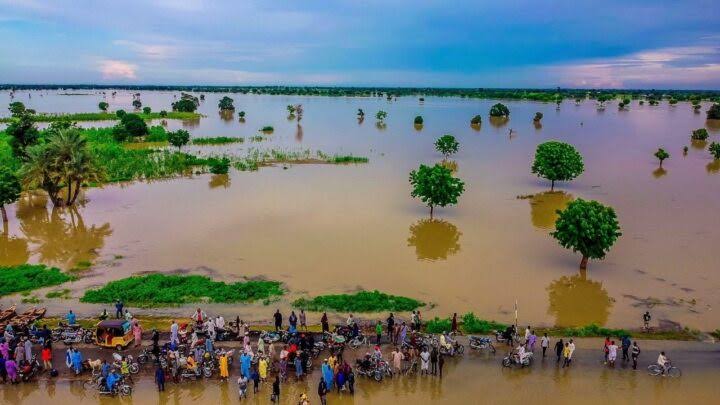By Charles Ude Esq, Abuja‑based legal practitioner and public opinion analyst
Nigeria’s rainy season in 2024 and early 2025 has delivered what can only be described as disasters in slow motion: record-breaking downpours, collapsing infrastructure, and lives lost as climate impacts meet systemic failure.
In July 2024 alone, heavy rains submerged parts of Lagos—including Victoria Island, Ikoyi, Lekki—and segments of Abuja, particularly Lugbe’s Trademore Estate. Nearly 2,000 homes were flooded and 50,000 people lost access to water and power :contentReference[oaicite:7]{index=7}.
The situation escalated in May 2025, when the town of Mokwa in Niger State was devastated by flash flooding. In less than a day, more than 500 people died, over 600 were declared missing, and more than 3,000 homes destroyed, as bridges and roads washed away :contentReference[oaicite:8]{index=8}.
Scientists attribute much of this intensity to climate change—making extreme rains up to 80 times more likely than in the past—while warning systems remain weak and infrastructure crumbles under stress :contentReference[oaicite:9]{index=9}.
These events illustrate an unsettling truth: Nigeria's climate justice crisis. Vulnerable populations living in poorly designed cities—on floodplains, with clogged drains and uncontrolled development—are disproportionately bearing the toll of climate-fueled flooding :contentReference[oaicite:10]{index=10}. Rapid urbanisation and deforestation remove natural buffers; waste clogs channels; and dam mismanagement compounds the problem :contentReference[oaicite:11]{index=11}.
The destruction extends beyond human tragedy. In 2022 floods affected 1.4 million people, killed over 600, and demolished over 200,000 homes and 110,000 ha of farmland, with economic losses exceeding $150 million :contentReference[oaicite:12]{index=12}.
Nigeria’s hydrological services warn that flooding risks now span 30 out of 36 states, with millions facing potential displacement in the coming months :contentReference[oaicite:13]{index=13}. Yet government response remains reactive—focused on relief rather than resilience.
While early warning systems exist, their reach is limited, and community-based climate adaptation remains fragmented. A comprehensive National Adaptation Plan is still incomplete despite being launched years ago :contentReference[oaicite:14]{index=14}.
The pattern is clear: climate‑driven rainfall meets crumbling infrastructure and weak governance. The result is a disaster that repeats annually, with increasing severity.
The path forward demands coordinated action:
- Scale up early warning systems and community-led disaster preparedness.
- Invest massively in modern drainage, flood barriers, and resilient urban infrastructure.
- Adopt and implement Nigeria’s full National Adaptation Plan.
- Integrate climate considerations into urban planning, zoning, and environmental enforcement.
- Restore natural systems—wetlands, forests and flood plains—as buffers.
Nigeria must act now. Climate change may be beyond our control—but what we can control is our response. Without decisive reform in planning, infrastructure, and governance, every rainy season risks becoming our country’s next tragedy.



